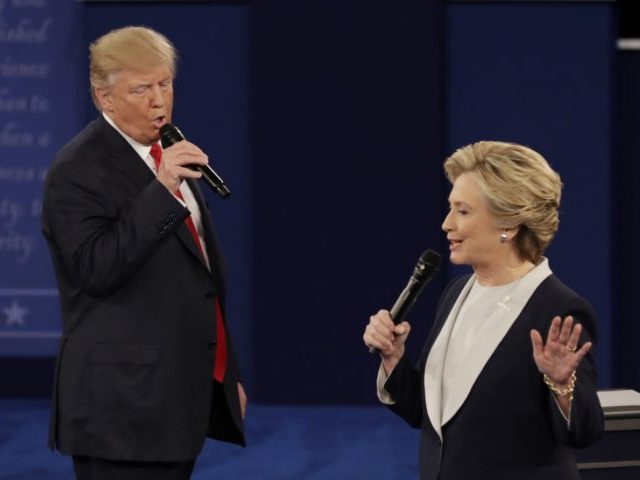Behind the scenes, both the Trump and Clinton camps have been manipulating social media to ensure their respective messages go viral.
According to a report by The Washington Post, “both the Clinton and Trump camps have enlisted networks of supporters to amplify select, on-brand messages before and during the debates.”
“Dozens of designated slogans, memes and links” were retweeted by members of these networks before Sunday’s debate. During the heated exchange itself, both sides employed repeated e-mail “blasts” to keep everyone as loudly on-message as possible.
Both Clinton’s “Grassroots Tweeters” and The Donald’s “Big League Truth Team” hope to engage in the information age’s newest brand of “rapid response” guerrilla campaigning, carefully timing surges of social media activity at key strategic points, with precision timing. According to Chief Executive Joe Rospars of the Blue State Digital brand agency, this is an important part of both modern voter awareness, and the impression their following can make on mainstream media.
Twitter is what passes for real-time conventional wisdom now. You want people consuming bits of the debate with your framing on them. And you want them, through their RTs, to influence the press’ impressions.
Rospars should know: he headed up Obama’s extremely successful digital campaigns in 2008 and again in 2012, including a “Fight the Smears” initiative that encouraged supporters to spam their friends with information debunking rumors about then-candidate Barack Obama.
Signing up for either network will mostly just get you an inbox full of campaign-related buzzwords, as well as requests to signal boost select messages. Especially popular users with substantial followers may be invited to an exclusive Slack channel by the Clinton campaign, or participate in exclusive conference calls with Trump’s.
Though the messages are similar, the content and tactics are notably different. While Clinton’s camp encourages participants to spread messages from prominent Democrats, “third-party validators,” and celebrities, Trump takes a more direct approach. You’ll only be asked to generate buzz around tweets by the campaign or the GOP nominee himself, the vast majority of those directly focused on challenging his opposition.
So far, it’s difficult to say which strategy has proven more effective. Internet popularity is an inexact metric at the best of times, and social media has a uniquely short attention span. Minutes after the conclusion of Sunday’s debate, this guy was already being talked about more than either candidate:
And the winner of the second presidential #debate is… Ken Bone https://t.co/4Gbbw45j0x https://t.co/OfTk0eWjrg
— CNN (@CNN) October 10, 2016
Follow Nate Church @Get2Church on Twitter for the latest news in gaming and technology, and snarky opinions on both.

COMMENTS
Please let us know if you're having issues with commenting.